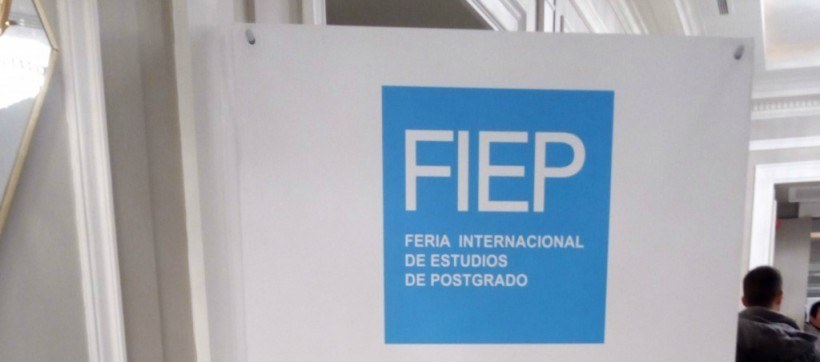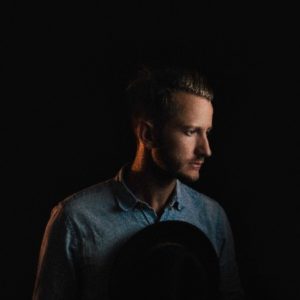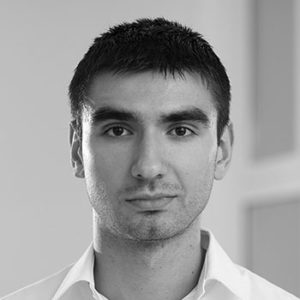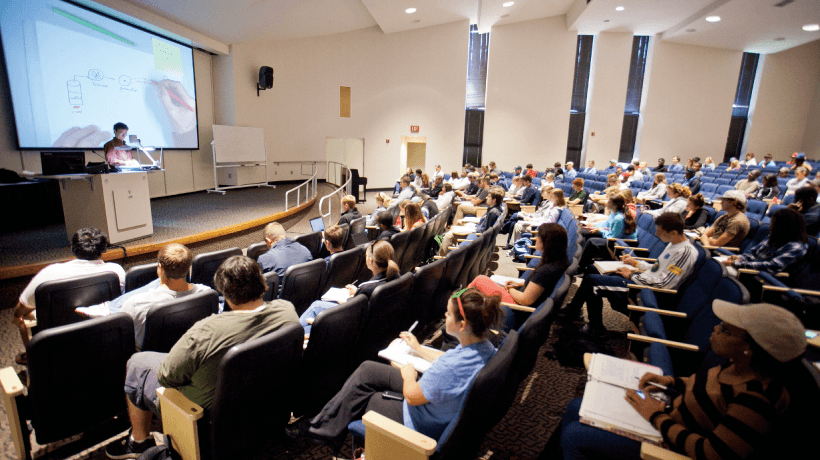How The Postgraduate Offer In Spain Is Getting Prepared For Change
According to a report by the World Economic Forum, presented at Davos, it is estimated that 65% of primary school students will end up working in a job that does not yet exist. The report, entitled "The Future of Jobs" states that the so-called Fourth Industrial Revolution will mean the disappearance of 7.1 million jobs, and the creation of 2.1 million new positions by 2020.
To see how the offer of postgraduate courses in Spain is getting prepared for change, we attended the International Fair of Postgraduate Studies, where we launched two questions to the organizers and attendees institutions:
- What is your postgraduate offer to meet the demand of the labor market in new professions?
- How do you include new technologies in training?
Here we present their answers:
Alberto González Tarragato: Círculo Formación. Managing Partner of New Technologies:
- What is your postgraduate offer to meet the demand of the labor market in new professions?
While being in touch with the market and companies, postgraduate centers detect their needs very well. For example, the need for specialized professionals in social networks, Digital Marketing, and Big Data has been identified; in a fairly agile way, as it is something quite new, institutions have been selecting pioneers professionals in each area to incorporate them as teachers and professionals in these business schools and universities so that they can impart these new programs that help to create more new professional staff; it is a bit like a dog chasing its tail. You must start somewhere and really business schools today are doing a very good work on that, perhaps because of the relationship they have with the business sector in their areas, because in the end there are business schools and universities in all areas of business. - How do you include new technologies in training?
In recent years there has been a dramatic change. Ten years ago no one could think about attending a classroom with a laptop. Now all classrooms are equipped, but it also depends on the school. In addition, they are applying new technologies very well, and there are from digital pencils to register what you write and then you can download it, to applications where notes are also saved in the cloud, webinars that are being taken... There are countless tools that can greatly facilitate learning. I think these tools are mostly used in programs that are online, as are those who are a little more advanced. I do not know who is using virtual reality or augmented reality in business schools now. In the case of 3D printers, they are probably in use in design schools; there are postgraduate programs in industrial design that are probably using them. With googgle glasses, I think there has been a small impasse over the issue of privacy. There have been privacy issues in the US with these glasses, because it was possible to locate where the student was, then send the student a whatsapp, or take pictures and videos without her or his consent... I know it has had interesting medical applications for surgery. There is an American university that is using it. But it has remained there, even if it will gradually come to us.
Cámara de Comercio (Chamber of Commerce):
- What is your postgraduate offer to meet the demand of the labor market in new professions?
In 2015, we had no training other than traditional. We are now training in e-commerce, online management and sales and in Big data and new technologies. All professionals across the spectrum of the hierarchical structure of the company, must meet these subjects in a greater or lesser extent level. It is a requested training. The university - company relationship is not very large, because the goals that drive each one of them is different. It is also different to talk about public universities and private universities. Private universities are closer to the world of business because in many cases they are depending on these companies for obtaining students practices, or to offer some support to training. Public universities are slower and are more attached to the traditional model, with a training of what there is here and now. We know well the German education system and the university; public university in Germany has nothing to do with the Spanish university. Companies go to college to find talent, because they know that universities generate that talent. - How do you include new technologies in training?
From the point of view of postgraduate education, as it has happened in college, although to a lesser extent, the teaching model has changed its structure to not return to what it was. If it prevailed before face to face training and giving knowledge from a theoretical point of view, rather than practical, this has been reversed and everything that is being transmitted now in business schools is based on practice. To do this, the first thing is to have teachers or university professors who are professionals who want to share that experience lived throughout their working years. This knowledge is not just possible “here and now”. Thanks to new technologies, what has been achieved is that the delivery of that education can take place anywhere, anytime. What new technologies are allowing is the dissemination of this knowledge without limitation of time or space. For us it is a way to reach a wider audience, which also affects to create income. New technologies are gaining weight, as it get reflected in statistics. Approximately 30% of students is getting trained through distance learning. This is also a consequence of the volume of programs available to students.
Next International Business School:
- What is your postgraduate offer to meet the demand of the labor market in new professions?
In Next International Business School we are firmly committed to new professions, focusing on those who have a high demand for professionals in the market. In that regard, we highlight the Master in Cybersegurity, supported by the University of Lleida and delivered by the company S21 SEC, specialist in the field. We also consider very important our commitment to venture through the International Master in Business Creation and Acceleration. In it, we have seen, through different promotions, how our students have been able to launch their own startups developing innovative ideas thanks to the training received. In this way, they have not only secured their professional future, but also, they are already creating jobs and opportunities for more people. In addition, we are very proud to have built in the 2015-2016 course three new innovative programs: the Master in Tourism Intelligence: Management and International Business, the Master in Big Data and Business Analytics and the Master in Advanced Policy Communication. The market demands experts in Big Data and the application of these new technologies in sectors such as tourism is already producing a real revolution, especially in a country like Spain, where tourism is a sector in continuous development. We move forward to the future with the creation of these programs that are facilitating the access of our students into the labor market and the implementation posed by these new technologies in traditional sectors. As for the Master in Advanced Policy Communication, we considered very necessary and convenient to make this commitment to the world of communication. Both our president, Manuel Campo Vidal, and Manuel Castells, president of our Academic Council, they support this program with his outstanding career. In our school they are being trained, with excellent results, the political analysts needed by the political and social revolution which we are living now. Finally, the connection with the reality of the market and proximity to the business world is for our students an added value, compared to traditional training. In this sense, we develop programs such as Dialogues with Leaders and Professionals and Business Master Classes. - How do you include new technologies in training?
Next International Business School has opted from the beginning to incorporate new technologies to all its academic programs. Specifically, we see a technological effort in the implementation and maintenance of the online campus that allows training in all our masters to take place from anywhere in the world and at the time that the student chooses. At present, we can speak specifically of distance learning programs such as Big Data in Mexico, which is being given by outstanding professionals from our headquarters in Madrid. Our students are constantly in touch with new technologies thanks to the program "Business Master Classes". Here, students from the Master in Big Data or the Cybersecurity Master have been able to receive classroom training in leading companies such as Quantis or Beeva, to name some of the most recent examples. Among the new technological tools our teachers use every day we can highlight the Science Network, essential but almost unknown by new business leaders and HR directors. In our programs, new disciplines such as Neuroscience Communication are also present; one of the greatest experts in Spain in this field, Mónica Deza, is part of the Academic Council and professor of our students in Communication, besides giving master classes to other students in other programs. In the near future, we will continue betting on maintaining and improving the online training and being able to automatically transfer all of our academic developments in the face to face area to the online mode. It has been a demand from the beginning and we want to keep it. We also continue betting on continuing to expand our international vocation, reaching the largest number of countries as possible (at present, over fourteen nationalities have access on campus).
- What is your postgraduate offer to meet the demand of the labor market in new professions?
Marketing is one of the studies that under our view has evolved the most over the years, which are the same programs that speak of traditional marketing, but with the incorporation of new technologies. To create specific programs for new professions itself, we have not made any. Through a specialization program in Digital Marketing, which is a higher degree, we see Big data, Mobile Marketing, Social Networking, Relationship Marketing, CRM, databases... that is what we are working on. We focus on the practical application for the return on investment from the point of view of digital Marketing. - How do you include new technologies in training?
We are a little more traditional school. We are still with classroom training. We are gradually incorporating online training through the Moodle platform. We are working on it. Actually, in terms of new technologies, yes we are working more on specialization courses through digital Marketing, Community Management, Social media... that is, everything that constitutes the latest developments applied to training. We will launch our first online program. It is a program of international trade being of the highest rated, and we will deliver it online to reach other markets that otherwise would be unlikely to travel to the classroom training.
Universidad Autónoma de Barcelona (Autonomous University of Barcelona):
- What is your postgraduate offer to meet the demand of the labor market in new professions?
In communication we teach several online marketing programs; we have a postgraduate course focused on social networks, which is super updated; in all areas we try to be a little ahead of the labor market. Medicine is also a super leading field in our university. At a master's level, in the surroundings of Barcelona, the healthcare industry, including the pharmaceutical one, is a very important area. Barcelona hospitals are traditionally at the forefront in several areas such as medicine, surgery and research. Almost all universities in the environment work together with health centers; Autonomous University is one of them: It is one of the pioneers in working in health centers to organize master programs and get specialized. It offers master's degrees that are well ahead in this direction, in collaboration with health centers such as the Red Cross of Barcelona, University of San Pablo... It also imparts a joint program with the University of Barcelona, in the center of biomedical research at the Hospital del Mar, which it is one of the teams that are more at the forefront of stem cell research. - How do you include new technologies in training?
At the University there are several fields, and each field plays multimedia aspects. We provide 120 official masters. In marketing, computer science and environmental science our offer is more updated. These are international programs through agreements with universities in other countries. These are pointers programs.
Eae Business School:
- What is your postgraduate offer to meet the demand of the labor market in new professions?
In tourism, we have Sustainable Destinations and Cultural Tourism, which in a country like Spain, focused on tourism, is very important. We have new programs in International relations and Global political governance, as well as Heritage management. - How do you include new technologies in training?
We have a platform called Blackboard, which follows an interactive dynamic, where students can see all the academic material, the digital library, the notes. It works with interactive material, with a digital library from Planeta Group and another one from Harvard.
Eoi:
- What is your postgraduate offer to meet the demand of the labor market in new professions?
We are a company of management business and of environmental management. We have been working with environmental programs for many years. We have incorporated programs that are specifically oriented to the digital economy: We have programs in Digital Marketing, a program in Big Data and Business Analytics. There is a fairly wide range for all profiles. A large market demand for Big data professionals is taking place. We are training both Big data managers and pure technicians. Postgraduate programs are designed to train Big data technicians. We also cover Digital marketing, with a program that we have launched, and it is incorporated as a specialty within other postgraduate programs. All students, regardless of what they choose, are offered to take a specialization in digital marketing. - How do you include new technologies in training?
We teach graduate programs for recent graduates. All our programs incorporate a virtual classroom in which students work on the online platform. They can be connected all the time with tutors from the school. We have a new module for students to work their digital profile on networks. In the online streaming sessions where we work, in the near future, through 3D glasses, we are evolving for students to live it directly as if they were in the classroom.
- What is your postgraduate offer to meet the demand of the labor market in new professions?
How do we help students to get adapted to the working environment? From the Faculty of Law we have the Master in ICT Law, Social Networks, and Intellectual Property. It is a master that precisely seeks to help companies at a legal level in all these new business models and all the challenges that arise in the treatment of intangibles, etc. Then, at the level of Executive Education, we have the Master in Digital Marketing, and there we include smaller courses related to this. - How do you include new technologies in training?
We use a Moodle web, where we publish a range of materials and we communicate with students. Where we have gone further it is in a program that combines classroom training with distance learning. Above all, this is in Executive Education, a program that we do with the Italian business school Bocconi, which offers the Executive Marketing and Sales program. This is a year-long program, during which they have to come six times in person for a week, so it would be six weeks in class between Italy and Spain (three in Italy and three in Spain) and the rest is all online.
- What is your postgraduate offer to meet the demand of the labor market in new professions?
We are a school of management and leadership, and there is quite a requested master, Fashion Companies Management, which is the most successful we have now. We give this master in Madrid, Barcelona, Bilbao, in Bogota and Mexico and it is always complete. It is aimed at a sector of the economy focused on fashion, that in Spain has been very, very powerful for years and it is being much developed. We are leaders and there is an increasingly request of more specialized and more specific trained professionals in this field today. Our students not only get to know about Marketing, they get to know about Marketing applied to the fashion industry. We have an agreement with the Marangoni Institute in Milan; there is a small part of the master that is focused on the design and we send our students there, although we are not a school focused on technique; we focus on management. What we want is that students learn to make decisions, with a methodology that we stablish, based on problems search, data search, legal search, search of criteria and decision making. And no matter if it is International Trade, Hotel Management, -which is another master which is also working quite well for us- or Fashion; It is exactly the same: It's all decision-making and we do not use technical things. Then we have the International Trade program and the Project management program, of which you can say that it is one of the most demanded professions, but that it is not a new profession (and that it started many years ago), but the truth is that it is a very specific profile in business, the project management one. The last program we've launched is the Master in Brandoffon; It is what we used to call the Master in Digital Marketing, but today it has become very obsolete, because it is not just marketing, and that's where we made the first move to the Master in Digital business, which was more oriented to digital business and then again to the Master in Brandoffon: it is an author master, with Andy Stalman, a guru of Brandoffon, of digital business. He wrote a book, "Brand off on the branding of the future" in which he suggests that today all companies, which he calls brands or trademarks companies, do not have to be either on or off, but they have to offer a mix that no longer consists on dividing marketing or strategy on one thing or another, but that should remain all together. - How do you include new technologies in training?
We really do not use new technology that much. Yes we have a platform based on Moodle, and there is a large percentage of training in all our programs that is taught through the online platform. We give training in the classroom or as blended training. There is a very large content through the platform, which is a very active tool. All students access every day, because through the platform is where they see the technical notes, and it is our channel of communication. All content, all materials, we no longer print them: Everything is published on the platform. From the point of view of new technologies, this it is what we are doing, apart from the media we have in the classroom (wifi, projector) but those are no longer considered as new technologies.
Universidad de Navarra (University of Navarra):
- What is your postgraduate offer to meet the demand of the labor market in new professions?
Biomedical Engineering: As a degree it is new, since the market requests it today as a new profession. Master in Biomedical Engineering: It is a master led to specialization. Teaching is given by professionals: doctors, researchers, health workers... Everyone is an expert in his field and it is taught in the biomedical campus of Pamplona, in the University Clinic at the facilities of the University of San Sebastian, in the technological campus at the Donostia Hospital... that is, we have a number of specialized areas. How do we respond to the needs of the company? By talking to companies. When we posed the master, we were seeing what surrounded us and what types of profiles could be of interest, and this is why what we did was to create a specific master in tissue engineering or in a closed field, within the biomedical engineering sector. In the master there are two itineraries of specialization in biomedical technologies and analysis of clinical data. Within this field we have a fairly broad training, much more specific than the degree, which allows us to train students in the two fields identified and that could involve having a good career opportunity to meet the business needs. For example we have alumni working in medical equipment; also in smaller companies, for example in development of instrumentation and equipment for preparation of drugs; we have people who are preparing a doctorate in various fields of media applications on a medical field; there are people who are working in companies doing Big data analysis of clinical data; people getting specialized in image... Within what the career is, we have allowed people to target themselves to a particular and more concrete field, but we do not prepare them to work only in image, or just in something too specific; we have to cover all areas. - How do you include new technologies in training?
We have operation robotic devices, specific robotics laboratories; we have specific tissue engineering laboratories; specific polymeric biomaterials laboratories; we have a biomedical instrumentation laboratory with x -rays; with MRI, an ultrasound machine, various networks with body sensors... The students who want to take professional practices, get access to the clinical facilities, working with large teams of MRI, with CT, resonances equipment... working first hand with equipment. The idea is to get a very practical master. What they have studied during the degree as theoretical techniques, during the Masters they see it from an applied and practical point of view. Today, companies recognize that the master responds to something they do not have, and that somehow they are patching through traditional masters students by recycling them. It has very good starts on many levels, because they get prepared not only technically but also at a management level, and at the end, it is multidisciplinary.
- What is your postgraduate offer to meet the demand of the labor market in new professions?
We have all kinds of mixed teaching (blended programs), with classes and virtual meetings. - How do you include new technologies in training?
We offer training in new professions such as Global cities (which has to do with the management of large-scale infrastructure in large cities), City Planning, Alternative Energy, Business, Consulting, Environment, etc.









